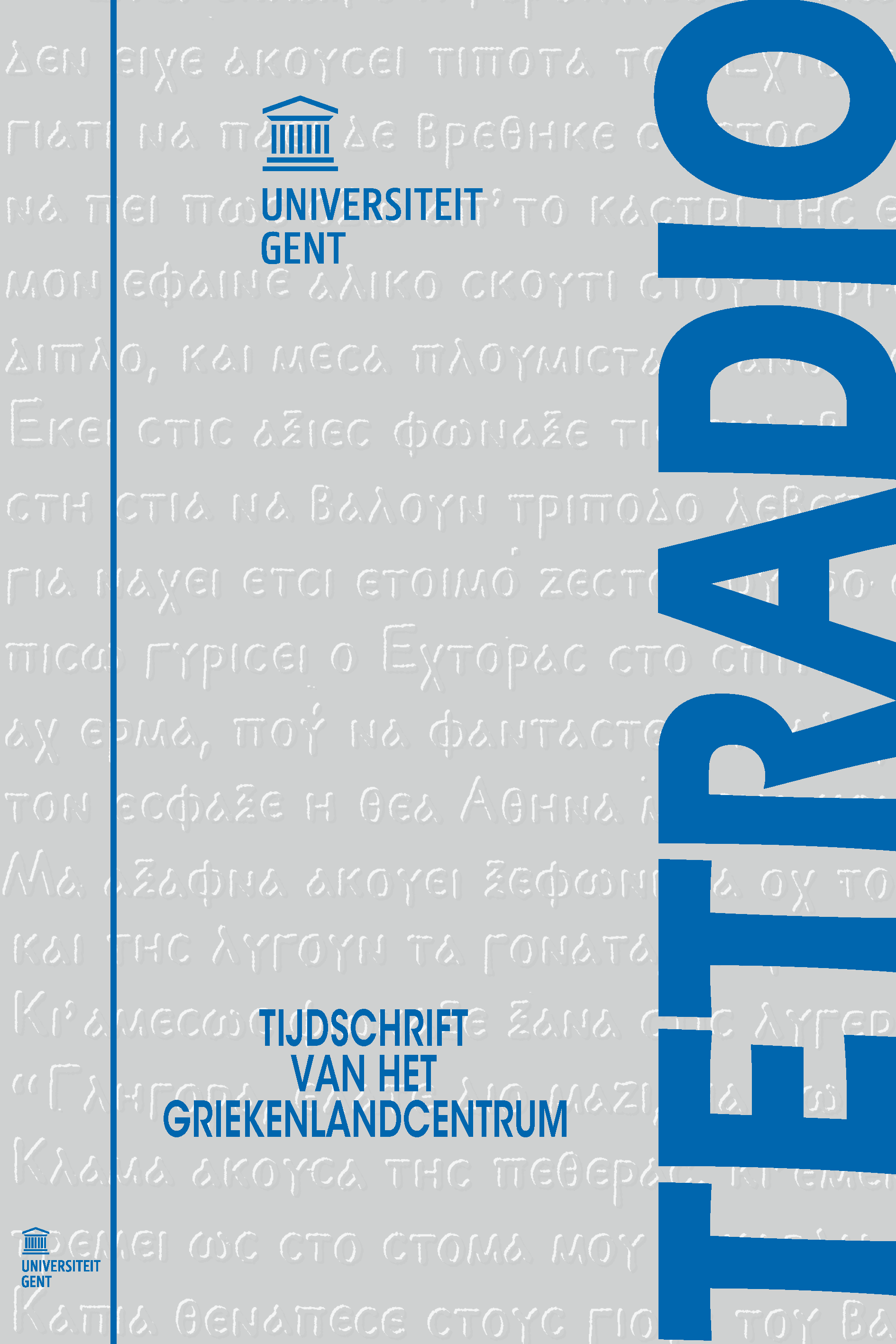How they did things with words': Epigrafische taalhandelingen en de emancipatie van de dèmos in de postklassieke Griekse 'poleis'
- Johannes Van den Bossche
Abstract
Inscriptions have been a source for ancient history ever since their discovery. In this article I tentatively reinterpret inscriptions as speech acts. By adapting Austin’s well-known speech act theory, I create a theoretical framework which can be used to gain access to layers of information formerly left out of consideration. By approaching inscriptions as speech acts, I am able to unravel part of the sociopolitical fabric that instigated the production of inscriptions. I demonstrate the usefulness of this approach by analyzing the socio-political context of the imperial Greek polis, focusing on the dichotomy oligarchy vs. democracy. As a means of capturing the voice of the people (media plebs), I reanalyze/reconsider the epigraphic record of associations (collegia). In doing so, I am able to identify some deftly crafted language-strategies used by these associations to negotiate their place and status in the polis, thus contributing to the ongoing rehabilitation of the people (δῆμος) as a significant political factor in Greek poleis under Roman rule.
How to Cite:
Van den Bossche, J., (2012) “How they did things with words': Epigrafische taalhandelingen en de emancipatie van de dèmos in de postklassieke Griekse 'poleis'”, Tetradio 21(1): 6, 105–131. doi: https://doi.org/10.21825/tetradio.91820
Downloads:
Download PDF
View PDF
